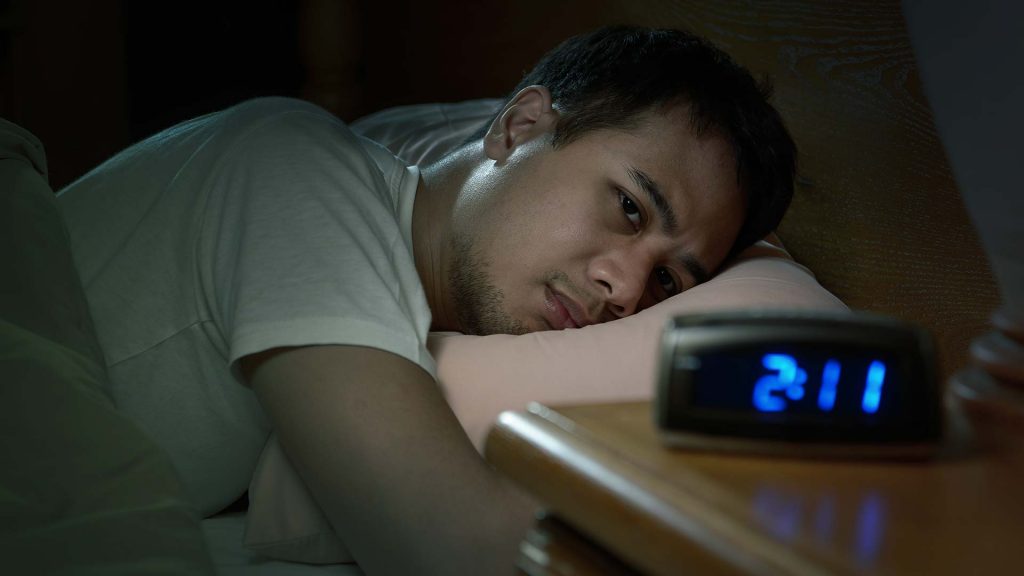Why can’t I sleep? How to treat insomnia and sleepless nights
We all crave a good night’s sleep. But what do you do when you can’t get to sleep, or struggle to stay asleep? While one night in a while might be manageable, an ongoing sleep problem can have a huge impact on your daily activities – and your health.

The good news is that many sleep problems can be effectively treated or managed. It’s worth talking to your doctor to work out the possible causes of your insomnia, and how to sleep better.
What causes insomnia?
Insomnia is a common sleep disorder that makes it difficult to fall asleep or stay asleep. The Australian Health Department estimates that more than a third of Australians are not getting the sleep they need.
The underlying causes of insomnia are many and varied:
- Unhealthy sleep habits (sleep hygiene). Irregular sleep patterns, such as going to bed and waking at inconsistent times can impact your sleep quality.
- Drugs and alcohol. Substances like caffeine, nicotine, alcohol, amphetamines and some prescription medicines can have a major effect on how you sleep.
- Anxiety or depression. Insomnia can also be an underlying sign of anxiety and depression.
- Medical conditions. Some conditions—like those causing pain, hormonal changes, and breathing issues— may cause insomnia.
- Sleep disorders. This can include conditions like obstructive sleep apnoea, circadian rhythm disorders and restless leg syndrome.
- Shift work. People who work different shifts often don’t sleep as well as those who work set hours during the day.
Poor sleep over an extended period of time can have a serious impact on your health, your quality of life and even your relationships with others:
- Difficulty waking at a normal time: you might miss important appointments or work/study obligations
- Daytime sleepiness or fatigue: this could lead to poor performance and an increased risk of accidents
- Poor concentration or forgetfulness: this could result in making errors or forgetting important events or details.
- Irritability: which could impact family or working relationships
- Anxiety or depression: which can also cause or worsen insomnia
- Tension headaches
- Problems with your digestive or immune system
How does the doctor diagnose insomnia?
Usually, a doctor will start by asking you about your sleep patterns. This could include questions like:
- How long have you been experiencing sleep issues?
- When do you go to bed and get up during the week? Does this differ from your weekend sleep schedule?
- How long does it take you to fall asleep each night?
- Do you use caffeine, nicotine, alcohol or recreational drugs?
- Do you take any prescription or over-the-counter medications?
- How often do you wake up during the night? How long does it take you to fall back to sleep after waking?
- How do you feel in the morning? Do you feel rested or tired?
- Do you use electronic devices or watch television in the hours before bedtime?
- Do you snore loudly or wake up gasping for air during the night?
- Do you have a recently diagnosed health problem or ongoing medical issues?
If you feel uncertain about the answers to some of these questions, your doctor might suggest that you start keeping a sleep diary.
A sleep diary helps you note down some of the patterns you observe around your sleep. You can note your bedtime and waketime. Or how many times you wake during the night — and for how long. You may even want to note down your electronic device habits around bedtime. All these things can help you work out how best to treat your insomnia.
Your doctor or specialist may refer you to an overnight sleep study. This can either be held at a special centre or at your home. These studies can often reveal important information about your sleep quality and potential underlying causes of insomnia.

How to treat insomnia
The treatment for insomnia really depends on what’s causing your sleep problems to begin with.
Your treatment will also depend on whether your sleep problems are recent or have been going on for some time.
If you are experiencing problems sleeping, you should speak to a doctor to find out the right treatment for you. You can request a telehealth consultation with one of our Australian-registered doctors from anywhere in Australia, seven days a week.
To speak with an InstantScripts Doctor:
Request a ConsultationIf you have run out of your script:
Request a ScriptHow to naturally improve and get better sleep
Are you wondering how to sleep better, the natural way? Your sleep hygiene – or healthy sleep habits – form the foundations for a good night’s rest. You could try some of these natural healthy habits to help improve your sleep:
- Go to bed and wake up at a similar time each day.
- Avoid caffeine, nicotine and alcohol — or even quit them completely.
- Exercise regularly— but avoid exercising near your bedtime!
- Avoid napping in the day.
- Avoid using screens (TV, laptop, phone) an hour before bed, or while in the bedroom.
- If you can’t sleep, get up. Try doing a quiet activity in another room until you feel tired and then try again.
- Do something relaxing before bed such as gentle stretching, mindful breathing or even taking a bubble bath!
© InstantScripts
Level 8 / 637 Flinders St.,
Docklands VIC 3008

